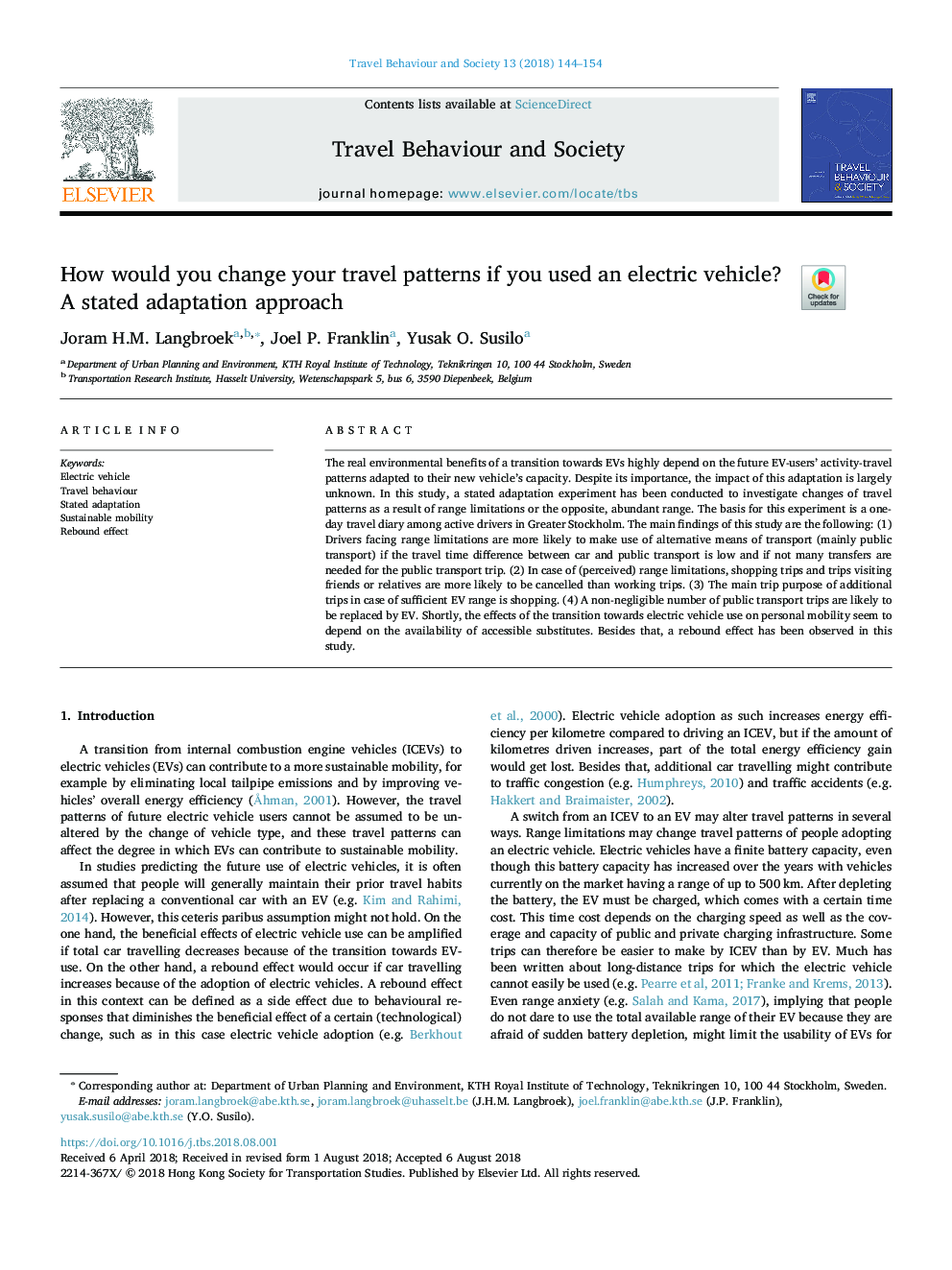| Article ID | Journal | Published Year | Pages | File Type |
|---|---|---|---|---|
| 6576268 | Travel Behaviour and Society | 2018 | 11 Pages |
Abstract
The real environmental benefits of a transition towards EVs highly depend on the future EV-users' activity-travel patterns adapted to their new vehicle's capacity. Despite its importance, the impact of this adaptation is largely unknown. In this study, a stated adaptation experiment has been conducted to investigate changes of travel patterns as a result of range limitations or the opposite, abundant range. The basis for this experiment is a one-day travel diary among active drivers in Greater Stockholm. The main findings of this study are the following: (1) Drivers facing range limitations are more likely to make use of alternative means of transport (mainly public transport) if the travel time difference between car and public transport is low and if not many transfers are needed for the public transport trip. (2) In case of (perceived) range limitations, shopping trips and trips visiting friends or relatives are more likely to be cancelled than working trips. (3) The main trip purpose of additional trips in case of sufficient EV range is shopping. (4) A non-negligible number of public transport trips are likely to be replaced by EV. Shortly, the effects of the transition towards electric vehicle use on personal mobility seem to depend on the availability of accessible substitutes. Besides that, a rebound effect has been observed in this study.
Related Topics
Life Sciences
Environmental Science
Management, Monitoring, Policy and Law
Authors
Joram H.M. Langbroek, Joel P. Franklin, Yusak O. Susilo,
